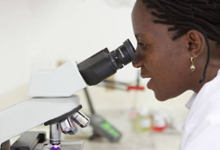The Food and Drugs Authority has hit a great milestone- getting an ISO 1900-2015 accreditation in addition to its ISO/IEC17025:2005 for its laboratories. According to the state authority, this was borneout of its efforts to improve the efficiency of its services and to demonstrate their commitment to providing quality services to its clients, suppliers and employees; thereby improving customer satisfaction and helping Ghana build a healthy nation with healthy citizen citizens.
Good news, isn’t it? But beyond the one-page publication on columns, it is left to perish like one of those bereaved news. This is undoubtedly one of the greatest news Ghana has received in 2017, but the impact assessment and acknowledgement of the hard-earned success is poorly elucidated. In the broader sense, our intuition and lack of cognizance to quality limits our acknowledgement for quality developments, which if for nothing, should not be with things that directly affect our health and our life.
The Food and Drugs Authority
The FDA is the legally mandated regulatory body entrusted with a huge responsibly for our health. The Agency under the Ministry of Health regulates food, drugs, food supplements, herbal and homeopathic medicines. It also regulates veterinary medicines, cosmetics, medical devices, household chemical substances, tobacco and tobacco products and ensure the success of clinical trials.
The citizenry, independent of social status and location is affected by the decisions and output of the FDA. It really clutches huge sphere of public health: approves only appropriate drugs, ensure the safety of vaccines, the accuracy and reproducibility of medical devices, food and many more.
Getting international accreditation is not a joke and the FDA opting for the ISO standardization is a great and selfless decision any state institution can embark on.
The International Standard organization (ISO) (also known as International Organization for Standardization) is an independent, non-governmental international organization centered in Geneva, Switzerland. The organization, through its membership, from 163 national standards bodies, brings expertise to develop voluntary, consensus-based, market relevant international standards to serve the bench marks for industrial works, services, and research in relevant fields.
As stated on its website, “international standards make things work. They give world-class specifications for products, services and systems, to ensure quality, safety and efficiency”. These support innovations and provide solutions to global challenges facilitating international trade and customer satisfaction.
Among other things, ISO standards helps institutions to organize processes, improve the efficiency of processes, ensures continual improvement.
ISO 9001:2015 Certification
The ISO 9001 is the international standard that specifies requirements for a quality management system (QMS) and helps organizations to demonstrate the ability to consistently provide products and services that satisfy customer and regulatory requirements.
First published in 1987, the current version of ISO 9001 was released in September 2015. Giving it name ISO 9001: 2015, this standard addresses issues related to;
• Requirements for quality management systems, including documentation of a quality manual, document control, and determining process interaction.
• Responsibilities of management.
• Management of resources, including human resources and an organization’s work environment.
• Product realization, including the steps from design to deliver.
• Measurement, analysis, and improvement of the QMS through activities like internal audits and corrective and preventive actions.
The FDA technically opted for the certification to care for the regulatory functions of its registrations, inspections, surveillance, licensing and clinical Trials as well as administrative functions within its department and divisions. It will also ensure compliance with importation and clearance at the port.
Subscribing to ISO standards reduces wastage, brings efficiency, produces quality products and services, and ensure the safety of society.
Certification Process
ISO is not a joke!! Let me reemphasize this. Myself having worked with an ISO accredited medical laboratory for some time now, I can confidently say it is not an easily implementable procedure particularly working and living in a country where the education and training does not lay emphasize on quality, if it is thought of at all. In a country where we are made to believe that, “what matters is the results”, and not the quality, then the desire and dedication can easily be disrupted. by society.
Applying and satisfying requirements of an ISO standards need dedication and readiness – taking employee and management out of their comfort zone, re-concientising and teaching them the basics of quality. even after University and/or years of working. It requires managerial and financial commitment. Like my boss will say “quality is expensive”. It requires conscious discipline and resilience by all staff of the institution.
The process usually requires series of check and balances to get rid of all impediments (called non- conformances) of and make sure they conform to the standard. It requires endless paper work- documentation and archiving. Putting in place quality checks and protocols to guide procedures and processes in every activity of the facility. The process requires an external auditing agency accredited by ISO to inspect and ensure that every certified institution apply the principles, maintain them, and improve upon those that require advancement.
The hectic moments of the accreditation process are really demanding but finally, they bring joy and job satisfaction to staff and the entire institution. It’s a worthy fight to embrace.
In conclusion, the FDA can now pride itself as a centre of excellence, being the first state institution to have these great certifications covering its technical and administrative processes, and that which separates it from its counterparts in Africa. “By this accreditation, the Authority is adequately equipped to consistently and efficiently protect public health through its regulatory activities” to meet customers’ expectations. They are basically going to serve us better!!
The processes involved towards the achievement of this milestone was not some funfair. It was a serious investment that requires rethinking, orderliness, quality consciousness, and passion to execute and go beyond the comfort zone. Unfortunately, these are the hazards of the public sector of Ghana, and for an agency to sacrifice its comfort zone of disorderliness, impunity and disregard for processes to attain an international status is a plus.
Let’s celebrate our successes and join hand to make things better in the same way we join hands to criticize looting, stealing and publicly declare our unflinching disapproval for the wrongs in society. I hope FDA will go extra mile to maintain this quality standard, and ensure that institutions they approve emulate their selflessness.
By Evans Kyeremeh
The Writer is a Laboratory Scientist and Quality Healthcare Advocate.
Website: MedCircles.com
Email: mr.evanskyeremeh@gmail.com
Discover more from MedCircles Ghana
Subscribe to get the latest posts sent to your email.









